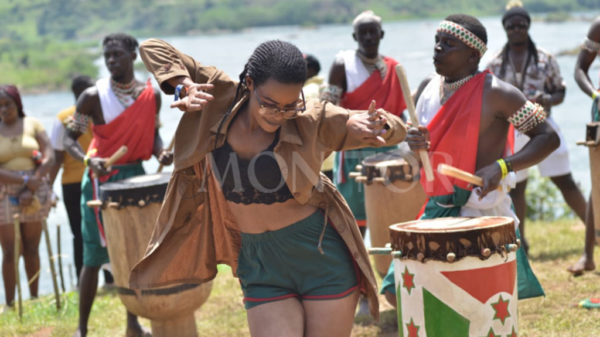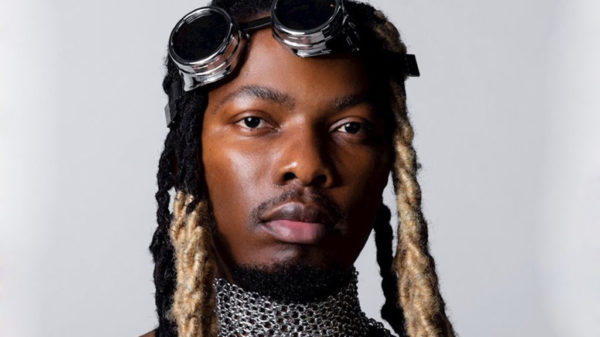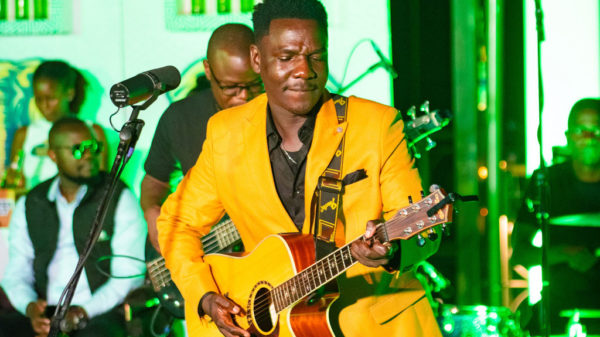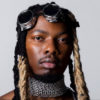Era of renditions: Over the past few weeks, streaming platforms have been awash with cover songs of older ones from Fred Ssebata’s Nalwewuba to Philly Lutaaya’s Born In Africa, but where did this culture come from? Andrew Kaggwa and Isaac Ssejjombwe find out.
When a Ugandan hears lyrics, “Tuyambagane nga mukwano wulira olwa leero, leka nkukume nga nawe mukwano bwonkumaa…..” they will easily relate the lyrics to songstress Juliana Kanyomozi for her 2006 rendition of Diana.
Of course, in a complicated world today, you will wonder why Juliana was doing a song addressing another woman. But the mystery is in the fact that neither the song, tune nor lyrics of the song initially belonged to Juliana Kanyomozi.
The original was done by Philly Bongoley Lutaaya, off his Alone 2: Legacy album, one of the last albums he released in 1988 before his death on December 15, 1989.
In 2007, Juliana Kanyomozi, alongside other artistes; Bebe Cool, Iryn Namubiru, Bobi Wine, Nubian Lee, Mesach Ssemakula and Jose Chameleone among others recorded an album, One Voice One Goal.
The album was intended to celebrate the legacy of Lutaaya, his music as well as his contribution to the fight against the 1990s HIV/Aids scourge.
One Voice One Goal was the first of a kind project that brought artistes in vogue to lend voices to older music for a cause but that was not all, the idea of people covering other people’s music was a new idea.
A cover song is a new recording or performance of a song by an artiste other than the original composer or performer. Bands and solo acts record cover songs as album fillers, singles, or re-imaginings, releasing them on live albums, studio albums, or a greatest hits compilation and sometimes these songs are specifically made for shows.
Of course Ugandan artistes had recorded remakes of folk songs such as Kakokolo and Obulo Bwaffe but people had not done songs whose composers are known.
The culmination of the One Voice One Goal was a concert held at Nakivubo War Memorial Stadium, supported by telecom giants MTN and the show had side activations such as free HIV testing.
Before that though, world over, cover songs had been a staple on people’s albums.
It is said initially, record labels asked artistes to record covers as fillers.
In the early days of the music industry, it was common practice to record and release multiple versions of the same song by different artistes at the same time.
History
Record labels continued to release more than one version of a song in the 1930s and 1940s. This practice benefited songwriters and music publishers.
Many hit songs by early rock ‘n’ roll performers generated safer, softer cover versions by other artistes who crafted conservative images such as Pat Boone’s cover of Little Richard’s Tutti Frutti.
Despite shifting trends, cover versions made up a considerable part of most artistes’ recordings in the 1950s and 1960s. Covers of standards and older popular songs filled out many long-playing albums during this period to showcase the artistes’ versatility. Even the Beatles’ debut album, Please Please Me, featured eight songs written by John Lennon and Paul McCartney and six cover songs.
Today, it is easy to find a popular album with a cover. For instance, Adele’s debut album, 19, had a cover version of Billy Joel’s Make You Feel My Love, Beyonce released her album, I am Sasha Fierce, with a cover of BC Jean’s, If I Were a Boy, and locally, Irene Ntale is known for releasing her double disk Sembera album with two covers; Kikomando by Bobi Wine and Smile Jamaica by Chronixx – the latter had a change in the title, replacing Jamaica with Uganda.
At the release of her album early in 2016, Swangz Avenue boss Julius Kyazze noted that Ntale had fallen in love with the song and had covered it. However, the team in Uganda took the precaution to reach out to Chronixx’s management.
The culture of making covers is currently catching on in Uganda. Once in a while, there will be a Mesach Semakula redoing Dan Mugula’s Ntongo to KS Alpha and Martin Yoyo’s version of Fred Masagazi’s Alululu, but the reasons are always personal.
Irene Ntale, for instance, said Bobi Wine’s Kikomando inspired and spoke to her.
Famous Ugandan projects
In 2014, 10 years after Elly Wamala death, his family decided to collaborate with a number of contemporary singers to redo over 15 of his songs that were popular then.
The project brought together artistes Bobi Wine, Chameleone, Irene Ntale, Iryn Namubiru, Aziz Azion and Rema among others.
Gertrude Wamala Karugaba, the late singer’s daughter and attorney of the family’s estate, had said the artistes chosen for the project titled Elly Wamala All Stars: A 10 years’ Tribute were all given permission to perform the songs but the family would retain the copyright until 2024.
The project was meant to preserve music for a generation that may not have experienced it and thus, they picked artistes who were a big influence to the younger generation.
“We have selected songs my father released up to the time of his death,” Karugaba said. “Our intention with this project is to share our father’s music with younger Ugandans who did not get to hear him or see him perform. Hopefully we can get him some new fans posthumously.”
Much as the production was placed in the able hands of audio producer Paddy Kayiwa, alias Paddyman, the project was heavily panned.
“I want to imagine some of the people who re-did the songs did not really understand the emotions behind the music, some of them turned out flat,” singer and instrumentalist Muserebende noted during a memorial lecture of Elly Wamala at the National Theatre.
However, the family insisted the project aptly titled, Elly Wamala All Stars: A 10 years’ Tribute, was a success.
The project was not different from the earlier Philly Lutaaya project. That project had brought together celebrities and had spawned into a number of famous songs. Unlike the Elly Wamala project, the Lutaaya project was not panned by critics as much.
In fact, it is not surprising that Juliana Kanyomozi’s Diana has lived around longer than any song a Ugandan artiste has covered.
The compilation, a brainchild of seasoned journalist Sebidde Kiryowa and three musicians, brought to the fore songs such as Born In Africa redone by Bebe Cool, Ngoni did Nazagwaki while Iryn Namubiru among others, re-did Empisa Zo.
Since 2023 started, many renditions have been released. Fred Ssebatta’s Sam Wange was redone by Daddy Andre and Sheebah and Nalwewuba by King Saha.
Why cover a song?
This time, the project is helmed by Uga Tunes and is also looking at preserving the music. The project has been panned and even the other songs that have been covered have been panned.
Most people have criticised Sheebah and Daddy Andre for their cover of Sam Wange and so has Eddy Kenzo for Born In Africa.
Many people ask themselves, why should one do a cover song?
“Honestly listening to Bebe Cool’s version, the song has bridges, verses, intro but they did their own things when they reached the bridge, which is bad. I was disappointed by Kenzo’s version. Lyto Boss did well but lacked on production. Doing shady work is bad. When you are doing a song of a great artiste, first ask yourself if you can pull it off. It is not all about being famous, it is because of the vocal ability. The song was too big for Kenzo,” Paddyman says in an interview.
Edward Sendikadiwa, aka Sendi, says people who redo songs set themselves up for comparison.
“Whenever you do a song that is already popular, people will compare your song to the original one,” he says, while, Jose Chameleone says some people fail to own the songs they cover.
“It is important to have your signature on a song you are covering, what Eddy Kenzo’s song lacked was his signature; he tried to sound like the late,” he says.
However, there is more to cover songs than just making music. For many labels and music executives, a cover song is the best way of finding yourself into the hearts of an audience, especially if you do it well.
A cover song registers you into the hearts of a new audience and an older audience that may pay attention to you as an artiste because of nostalgia.
Yet, even when cover songs are a sure way into the hearts of some audiences, others have found other ways such as remixes, a new recording of the same song with newer verses or samples, taking parts of a song and mix them on new material.
GNL Zamba and Navio both remixed Elly Wamala’s songs, Ani Yali Amanyi and Hamadi, by adding rap verses on them. Yet Navio’s Iko Hivi, Kigozi samples Fred Kigozi’s Okyayideki, just like Kanye West and Jay-Z sampled Otis Redding’s Try a Little Tenderness on their 2011 collaboration Otis.
Cover songs that outlived their originals
If I were a Boy – Beyonce (BC Jean)
Mambo No.5 – Luo Bega (Perez Prado)
Make You Feel My Love – Adele (Billy Joel)
Girls Just Want to Have Fun – Cyndi Lauper (Robert Hazard)
I Will Always Love You – Whitney Houston (Dolly Parton)
Killing Me Softly – The Fugees (Roberta Flack)
Don’t Turn Around – Ace of Base (Tina Turner)
Nothing Compares 2 U – Sinead O’Connor (Prince)
Red Red Wine – UB40 (Neil Diamond)
Valerie – Amy Winehouse (The Zutons)
Don’t want to miss out on any story? For updates on all Sqoop stories, follow this link on Telegram: https://t.me/Sqoop






























































